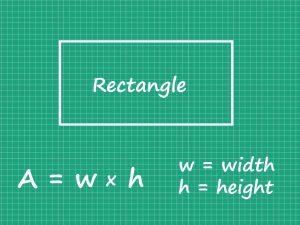Key Concepts
- Identify congruent triangles
Introduction
Angle-Side-Angle (ASA) Congruence Postulate:
If two angles and the included side of one triangle are congruent to two angles and the included side of a second triangle, then the two triangles are congruent.


If Angle ∠A≅∠D,
Side AC-≅DF, and
Angle ∠C≅∠F,
then ∆ABC≅∆DEF
Prove Triangles Congruent by ASA and AAS
Angle-Angle-Side (AAS) Congruence Theorem:
If two angles and a non-included side of one triangle are congruent to two angles and the corresponding non-included side of a second triangle, then the two triangles are congruent.

Given: ∠B=∠E, ∠C=∠F and AC=DF
To prove: ΔABC ≅ ΔDEF
Proof:
In ∆ABC
∠A+∠B+∠C=180° _____________ (1) (By angle sum property)
In ∆DEF ∠D+∠E+∠F=180°_____________ (2) (By angle sum property)
From (1) and (2),
∠A+∠B+∠C= ∠D+∠E+∠F
∠A+∠E+∠F=∠D+∠E+∠F (Given ∠B=∠E and ∠C=∠F)
⇒∠A=∠D _____________________ (3)
Now, in ΔABC and ΔDEF
∠A=∠D (from (3))
AC = DF (Given)
∠C=∠F (Given)
∴ΔABC≅ΔDEF (AAS congruency)
Hence proved.
What is a flow proof?
A flow proof is a step of proof to be written for a theorem. A flow proof uses arrows to show the flow of a logical argument.
Example 1: Prove the Angle-Angle-Side congruence theorem for the given figures.

Solution:
Given: ∠A≅∠D, ∠C≅∠F and BC≅EF
To prove: ΔABC≅ΔDEF

Example 2: In the diagram,CE ⊥ BD and ∠CAB≅∠CAD.
Write a flow proof to show that ΔABE≅ΔADE.

Solution:
Given: CE−⊥BD− and ∠CAB≅∠CAD
To prove: ΔABE≅ΔADE
Proof:

Example 3: OB is the bisector of ∠AOC, PM
⊥ OA and PN ⊥ OC. Show that ∆MPO ≅ ∆NPO.

Solution:
In ∆MPO and ∆NPO
PM ⊥ OM and PN ⊥ ON
⇒∠PMO = ∠PNO = 90°
Also, OB is the bisector of ∠AOC
Then ∠MOP = ∠NOP
OP = OP common
∴ ∆MPO ≅ ∆NPO (By AAS congruence postulate)
Example 4: Prove that △CBD ≅ △ABD from the given figure.

Solution:
Given: BD- is an angle bisector of ∠CDA, ∠C ≅ ∠A
To prove: △CBD ≅ △ABD
Proof:
BD- is an angle bisector of ∠CDA, ∠C ≅ ∠A (Given)
∠CDB ≅ ∠ADB (By angle bisector)
DB ≅ DB (Reflexive property)
△CBD ≅ △ABD (Definition of AAS)
Hence proved.
Example 5: Prove that △ABD ≅ △EBC in the given figure.

Solution:
Given: AD∥EC, BD≅BC
To prove: △ABD ≅ △EBC
Proof:

Exercise
- In the diagram, AB ⊥ AD, DE ⊥ AD, and AC ≅ DC. Prove that △ABC ≅ △DEC.

- Use the AAS congruence theorem, prove that △HFG ≅ △GKH.

- In the diagram, ∠S ≅ ∠U and ≅ . Prove that △RST ≅ △VUT.

- Use the ASA congruence theorem to prove that △NQM ≅ △MPL.

- Use the ASA congruence theorem to prove that △ABK ≅ △CBJ.

- Use the AAS congruence theorem to prove that △XWV ≅ △ZWU.

- Use the AAS congruence theorem to prove that △NMK ≅ △LKM.

- Prove that △FDE ≅ △BCD ≅ △ABF from the given figure.

- If m∥n, find the value of x.

- Prove that △HJK ≅ △LKJ from the given figure.

Concept Summary
We have learned five methods for proving that the triangles are congruent.

What have we learned
- Understand and apply Angle-Side-Angle (ASA) congruence postulate.
- Understand and apply Angle-Angle-Side (AAS) congruence postulate.
- Understand the definition of a flow proof.
- Prove theorems on Angle-Side-Angle (ASA) and Angle-Angle-Side (AAS).
- Solve problems on Angle-Side-Angle (ASA) and Angle-Angle-Side (AAS) postulates.

Related topics
Addition and Multiplication Using Counters & Bar-Diagrams
Introduction: We can find the solution to the word problem by solving it. Here, in this topic, we can use 3 methods to find the solution. 1. Add using counters 2. Use factors to get the product 3. Write equations to find the unknown. Addition Equation: 8+8+8 =? Multiplication equation: 3×8=? Example 1: Andrew has […]
Read More >>Dilation: Definitions, Characteristics, and Similarities
Understanding Dilation A dilation is a transformation that produces an image that is of the same shape and different sizes. Dilation that creates a larger image is called enlargement. Describing Dilation Dilation of Scale Factor 2 The following figure undergoes a dilation with a scale factor of 2 giving an image A’ (2, 4), B’ […]
Read More >>How to Write and Interpret Numerical Expressions?
Write numerical expressions What is the Meaning of Numerical Expression? A numerical expression is a combination of numbers and integers using basic operations such as addition, subtraction, multiplication, or division. The word PEMDAS stands for: P → Parentheses E → Exponents M → Multiplication D → Division A → Addition S → Subtraction Some examples […]
Read More >>System of Linear Inequalities and Equations
Introduction: Systems of Linear Inequalities: A system of linear inequalities is a set of two or more linear inequalities in the same variables. The following example illustrates this, y < x + 2…………..Inequality 1 y ≥ 2x − 1…………Inequality 2 Solution of a System of Linear Inequalities: A solution of a system of linear inequalities […]
Read More >>Other topics











Comments: